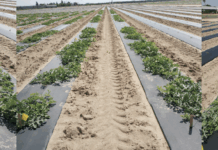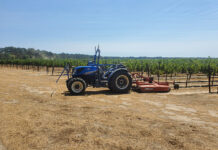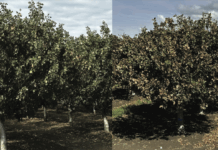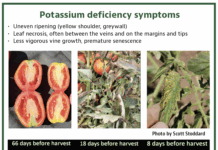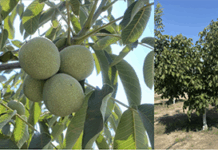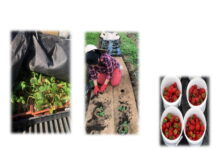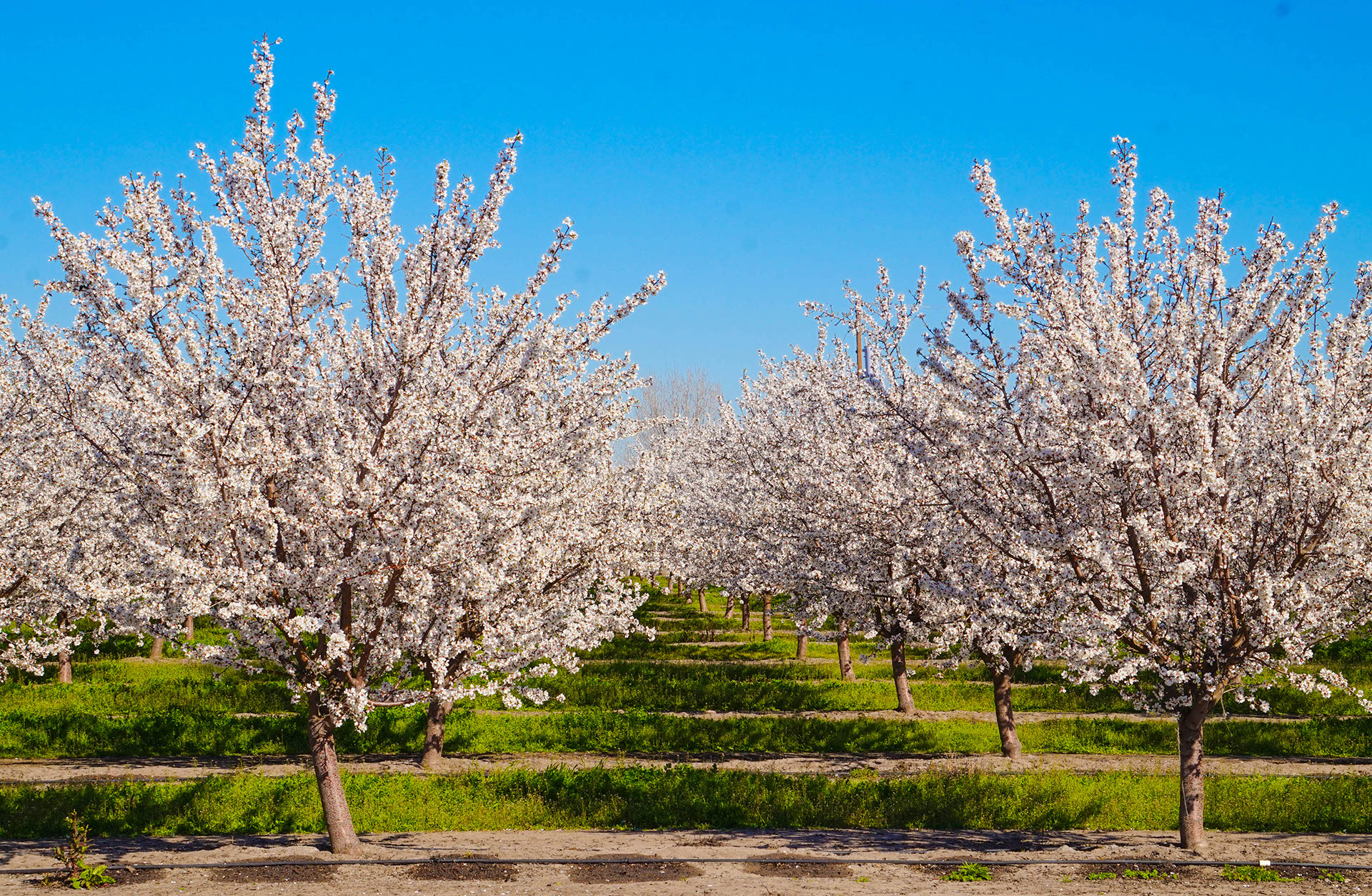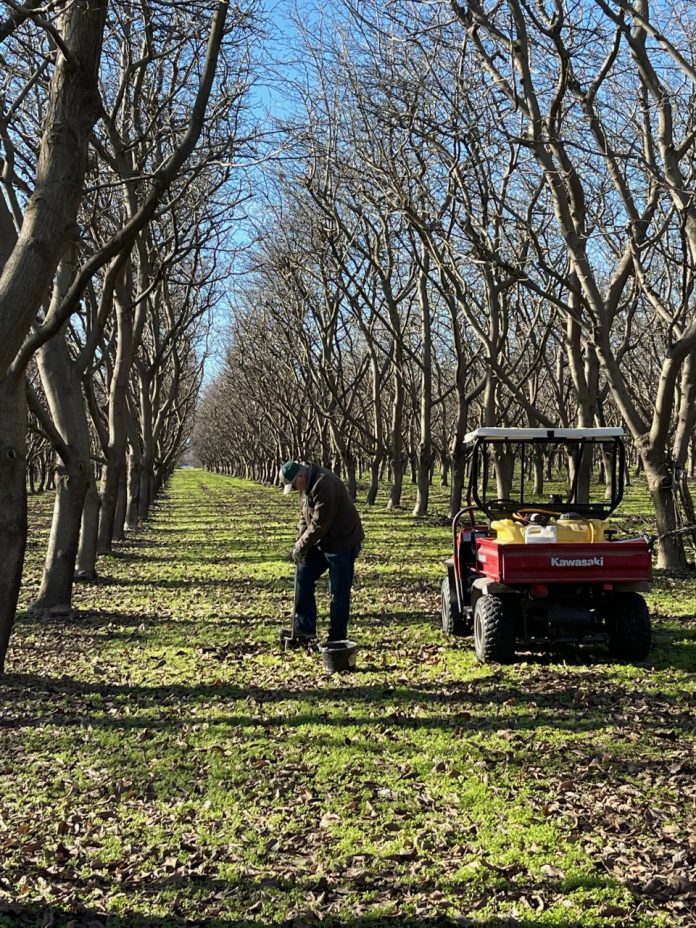
Crop consultant and crop advisor are one in the same. We provide educated advice to farmers about all aspects of farming. Each of us has different strengths and knowledge levels. I personally know consultants who focus on a single crop such as grapes or almonds. Others deal with numerous crops but focus on a category: tree nuts, row crops, field crops, tree fruit or combinations such as tree fruit and vine crops.
As a crop advisor, you may choose to focus on pest management. Others may focus on soil and nutrition, and some stick to irrigation management. To provide a complete crop advisor service, we need to be knowledgeable about more than plants and soil. We need to hold ourselves as authorities on any aspect of farming that affects our growers. We need to be able to advise on the type of crop grown and help decide if it is the best suited crop for the area, climate, soil and water conditions, and weigh in on the economics and long-range business plans of growers.
You should have formal education and training in the field you decide to specialize in. A Bachelor of Science degree or even higher degree in agronomy-related science would be helpful, even a lesser associate degree coupled with years of experience working in agriculture can serve your customers well. I believe in our field we should never stop learning and growing our knowledge base. Attend continuing education classes often to stay up to date with ongoing changes that face the ag industry. Prior experience working in agriculture, such as internships at a farm, nursery or agriculture business, can give you a leg up.
Responsibilities you may have as a crop advisor can include:
- Know the metabolism and growth stages of every crop you will consult on.
- Keep agronomic and financial records of customer accounts.
- Scout crops for pests and diseases that may arise during various parts of the growing season.
- Build relationships with growers that you service.
- Collaborate with other advisors in your area to understand disease and pest outbreaks in the area.
- Work with marketing managers to develop marketing plans and pricing strategies.
- Make recommendations to growers on actions that may need to be taken when problems arise.
- Provide training to growers in your area.
- Identify potential weed problems and offer suggestions on products.
- Utilize knowledge and understanding of weeds and herbicide modes of action to determine the most suitable treatment.
- Suggest crops and seeds to be used in the next growing season.
- Supervise chemical and fertilizer applications.
If you are going to advise on crop protection, carry the license and credentials to do so. A PCA license is mandatory in California for you to provide written recommendations. Several categories are available, and if you are going to be an independent, I recommend you pass tests in all of them.
I have carried both my PCA license and my CCA certification. I extended that to include being a California Nitrogen Management Specialist and even further by becoming a CPAg (Certified Professional Agronomist). Many other certifications are available including being certified in Sustainable Agriculture. As a crop advisor, you could choose to work part-time or full-time. You have the flexibility to work for retailers, manufacturers, corporate-owned farms, privately owned farms or a consulting firm. If you choose crop advisor as your career, do everything in your power to stay informed and up to date for the benefit of your customer/client.

Find Ways to Get Involved
Another critical item to build your business is being involved. By belonging to professional societies as well as community associations, you expand your horizon. Just a few professional organizations and associations are:
- American Society of Agronomy
- Crop Science Society of America
- Entomological Society of America
- Soil Science Society of America
- Weed Science Society of America
Reach out and become involved with the local farm bureau and crop associations to help inform growers of marketing issues, pending disease and pest pressures, labor laws and regulation changes. If you stay informed, you could help your grower avoid potential fines and penalties. Crop conferences are a great way to network, attend education classes and visit vendors to see what new tools are available or are coming soon. If you can spare the time, a very rewarding opportunity comes with serving on the board of directors for PCAs and CCAs. Both CAPCA and Western Region CCA are active and strive to bring up-to-date education and information to growers and members.
In speaking to some independent crop advisors, it became apparent that one weakness in developing your business was lack of information. The industry often focuses on the larger dealers and their PCA and CCA staff. Not enough training events or information is focused on the lone independent. Also, independents seldom have warehousing or multiple office locations. This is where having a supply of chemicals and fertilizer becomes crucial. An independent is in direct competition for acres and growers with larger, well-funded sales organizations. Finding competitive pricing for materials can become an issue.
When I visited with Fred Strauss, a retired independent, he gave me advice for those wishing to grow and maintain their business, noting “trust is the number one thing of importance. Gaining the trust of a grower and keeping that trust means they will keep using your expertise. Number two is consistency. The grower needs to know how often you will make field visits, when you will be on their property, and that you will review your findings and recommendations constantly.”
Strauss continued by discussing sustainability and the knowledge to make your grower meet or qualify for the label of being sustainable. Knowing the difference between being organic and sustainable and relaying this message is often clouded.
Strauss offered three suggestions for success. “Every day you show up for work, you must never forget the ultimate goal is to make your customer money.” He went on to discuss customer retention. The hardest new customer to get is a happy customer. The easiest to lose is the unhappy one. If a customer is unhappy or disappointed with your knowledge, dedication, honest advice and consistent performance, they are more likely to look elsewhere. If the same is true about how they feel toward another crop advisor, it could open a door for you.
I have always told consultants one of the most important things for succeeding as a crop advisor is feet on the ground. Don’t overextend yourself and reduce your efficiency. Hire some help like an intern to gather soil or tissue samples. Train them adequately and monitor their performance. Get the experience you need before you attempt to become an independent crop advisor. I personally believe it should be five years minimum. Earn your reputation before you try and sell it. Being your own boss can be appealing but make sure you are ready. Do you have the experience? Do you have the education and training? Do you have errors and omissions protection? Is your business model set up correctly? Do you have potential acres to seed your future growth? All good questions to ask before you start to grow a business.


